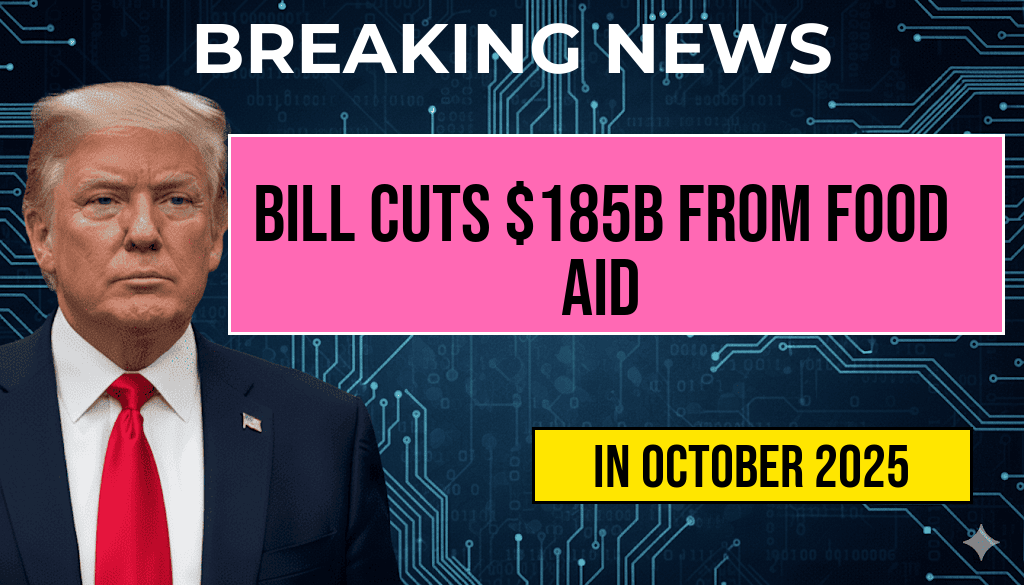Millions of Americans could face losing their health coverage under Medicaid due to a recent warning from the Congressional Budget Office (CBO). The agency estimates that, amid recent policy shifts and rising medical expenses, over 4 million Medicaid enrollees might be at risk of losing their benefits, primarily because of unpaid emergency room bills exceeding $1,000. This potential wave of disenrollments comes as states grapple with the financial pressures of covering low-income populations during a period of economic uncertainty and ongoing healthcare reforms. The warning raises concerns about the stability of Medicaid, which serves as a crucial safety net for vulnerable communities, and highlights the complex interplay between healthcare costs, policy decisions, and access to coverage.
The Roots of the Warning: Rising Medical Bills and Policy Changes
Escalating Emergency Room Costs and Patient Debt
Emergency room (ER) visits have become increasingly expensive over recent years, with the average bill now surpassing $1,000 for many patients. These high costs often lead to substantial patient debt, particularly among Medicaid beneficiaries who rely on coverage to offset healthcare expenses. When bills go unpaid, hospitals and healthcare providers may refer accounts to collections, which can trigger automatic disenrollment notices for Medicaid recipients in some states. Experts note that unpaid ER bills are a significant factor in Medicaid terminations, especially when patients fail to communicate with providers or establish payment plans.
Policy Shifts and Eligibility Reevaluations
Federal and state policymakers have recently enacted measures that influence Medicaid eligibility and renewal procedures. These include the end of the continuous coverage provisions introduced during the COVID-19 pandemic, which previously helped prevent abrupt disenrollments. As states resume normal eligibility reviews, some recipients who have accumulated unpaid bills or who have experienced changes in income may face loss of coverage if they do not respond promptly or meet renewal requirements. The CBO warns that these procedural adjustments could disproportionately impact those with unpaid medical debt, creating a ripple effect that jeopardizes coverage for millions.
Implications for Vulnerable Populations
Disproportionate Impact on Low-Income Communities
The potential loss of Medicaid coverage threatens to widen existing health disparities, particularly among low-income families, minorities, and individuals with chronic health conditions. For many, Medicaid is not just a source of healthcare but a lifeline that prevents financial ruin. Losing coverage could result in delayed or foregone care, worsening health outcomes, and increased reliance on emergency services down the line. Advocates emphasize that these disruptions undermine the core purpose of Medicaid—to improve health equity and provide access to essential services.
Hospital and Provider Strain
Unpaid ER bills and subsequent coverage losses might also place additional strain on hospitals and healthcare providers. Hospitals often absorb unpaid costs or pass them onto other patients through higher charges, contributing to the rising overall cost of healthcare. Moreover, a surge in uninsured patients could lead to increased uncompensated care, further threatening the financial sustainability of healthcare facilities, especially those serving rural or underserved areas.
What the Data Shows
| Scenario | Number of Enrollees at Risk | Primary Cause |
|---|---|---|
| Current Estimates | Over 4 million | Unpaid ER bills exceeding $1,000 and procedural eligibility reviews |
| Potential Disenrollments | Approximately 10-15% | Failure to respond to renewal notices or settle debts |
Data from the CBO indicates that the majority of those at risk have incomes just above the Medicaid eligibility threshold, making them particularly vulnerable to administrative disenrollments triggered by unpaid bills or administrative errors. Meanwhile, research from the Kaiser Family Foundation suggests that states with more aggressive renewal processes are experiencing higher rates of Medicaid terminations, underscoring the importance of targeted outreach and assistance.
Policy Responses and Future Outlook
State-Level Initiatives and Federal Support
Several states have announced efforts to mitigate the impact of potential disenrollments, including extended outreach programs, simplified renewal procedures, and financial assistance for unpaid bills. The Biden administration has also signaled intentions to reinforce protections for Medicaid enrollees, emphasizing the importance of maintaining coverage during economic fluctuations. However, experts warn that without comprehensive reforms and increased funding for outreach, millions may still slip through the cracks.
Legal and Advocacy Perspectives
Legal groups and advocacy organizations argue that automatic disenrollments based on unpaid bills violate the intent of Medicaid and could contravene protections established under federal law. They urge policymakers to implement safeguards, such as extended grace periods and improved communication channels, to prevent unnecessary coverage losses. The ongoing debate underscores the need for balanced policies that address fiscal sustainability without compromising access to care for vulnerable populations.
Looking Ahead
The warning from the CBO underscores the delicate balance between healthcare costs, administrative procedures, and coverage stability. As states navigate the post-pandemic landscape, stakeholders emphasize the importance of proactive measures to prevent unnecessary disenrollments. Ensuring that low-income Americans retain access to Medicaid, especially amid rising medical expenses, remains a critical challenge—one that requires coordinated efforts from policymakers, healthcare providers, and community organizations.
For more on Medicaid and healthcare policy, visit Wikipedia’s Medicaid entry and Forbes’ analysis on Medicaid expansion.
Frequently Asked Questions
What is the main concern regarding Medicaid in the recent CBO report?
The CBO warns that millions of people could lose their Medicaid coverage due to the financial burden of $1,000 emergency room bills.
How could emergency room bills impact Medicaid recipients?
High emergency room bills—specifically around $1,000—may lead to coverage loss for Medicaid beneficiaries if they are unable to pay or if policies change, increasing the risk of coverage gaps.
What are the potential consequences of losing Medicaid coverage for individuals?
Individuals who lose Medicaid coverage may face difficulties accessing necessary healthcare services, increased out-of-pocket expenses, and a higher risk of poor health outcomes.
Are there any proposed solutions to prevent coverage loss due to emergency bills?
Proposed solutions include policy reforms such as expanded support programs, financial assistance for emergency expenses, and eligibility protections to help Medicaid recipients maintain coverage.
What actions can individuals take to protect their Medicaid coverage?
Individuals should stay informed about policy changes, ensure timely payment of bills, and seek assistance from healthcare advocates or state agencies if facing financial hardship to prevent coverage loss.






